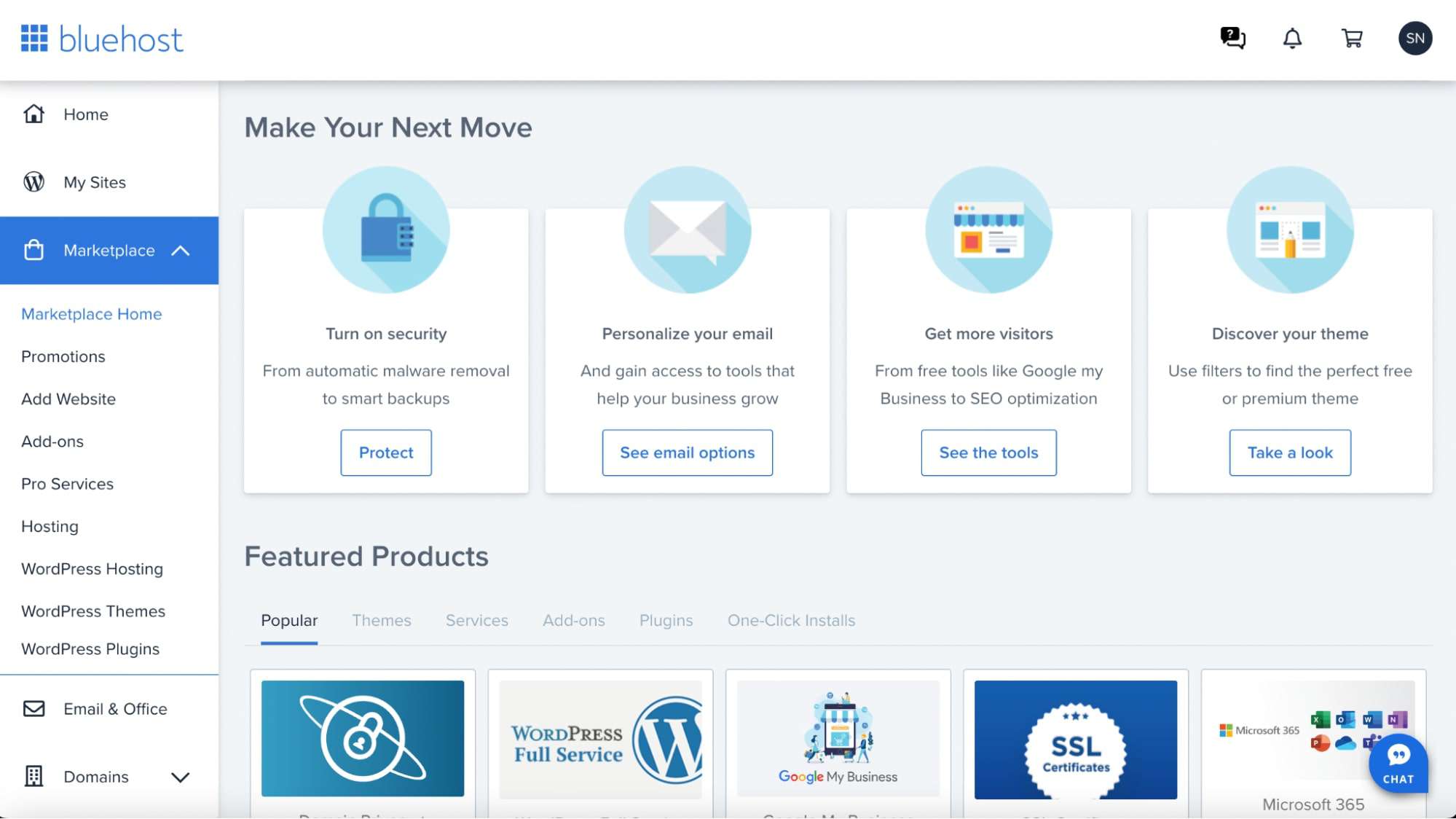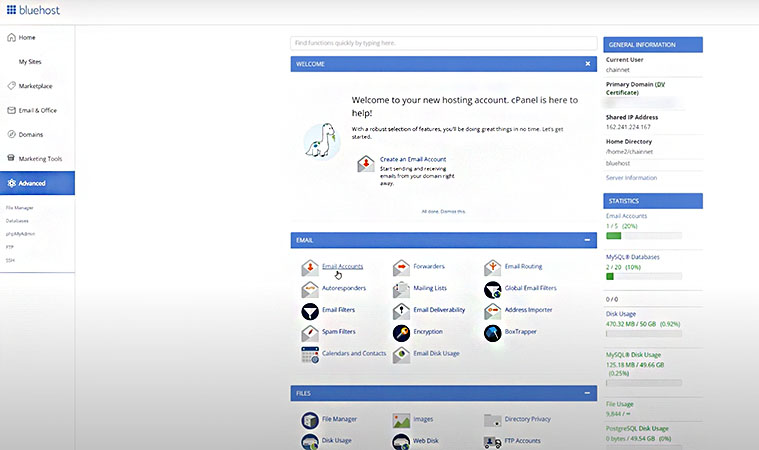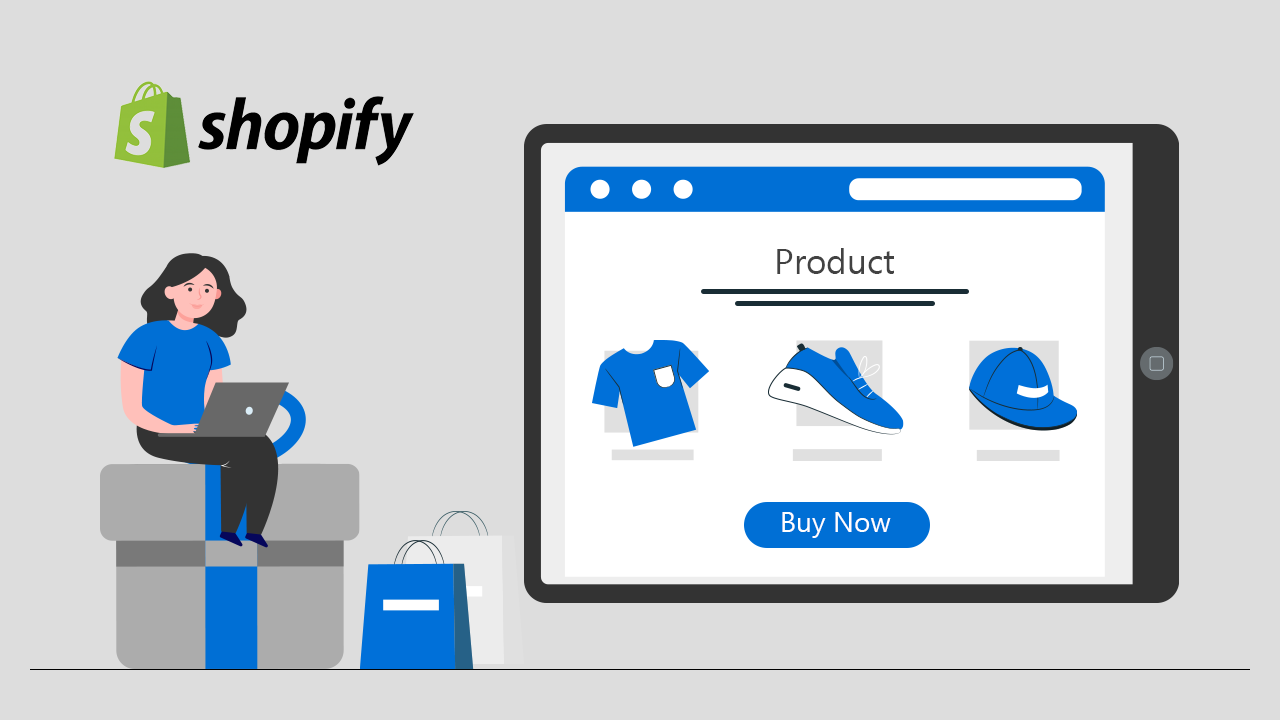Are you looking to start your own online store but don’t know where to begin? Look no further than Bluehost and Shopify, two of the most popular platforms for creating and managing e-commerce websites. In this article, we will delve into the features and benefits of using Bluehost and Shopify to build your online store, as well as provide a step-by-step guide on how to get started. Whether you are a beginner or an experienced business owner, this guide will help you navigate the world of e-commerce with ease.
1. What is Bluehost?

– Introduction to Bluehost
Bluehost is a web hosting company that was founded in 2003. It offers a range of hosting services, including shared hosting, virtual private servers (VPS), dedicated servers, and cloud hosting. However, what sets Bluehost apart from other hosting providers is its strong focus on WordPress hosting, making it the go-to choice for many WordPress users.
– Why Choose Bluehost for Your Online Store?
Before diving into the details of Bluehost’s features, let’s first understand why it is a popular choice for e-commerce websites. Here are some reasons why you should consider using Bluehost for your online store:
- Affordable Prices – Bluehost offers competitive pricing plans for all types of hosting, making it an excellent choice for small businesses and startups.
- Easy to Use – Bluehost has a user-friendly interface that makes it easy for beginners to create and manage their website.
- Reliable Performance – With a guaranteed uptime of 99.9%, Bluehost ensures that your website is always up and running.
- 24/7 Customer Support – Bluehost provides excellent customer support through live chat, phone, and email, ensuring that any issues are resolved promptly.
- WordPress Integration – As mentioned earlier, Bluehost is known for its seamless integration with WordPress, making it an ideal choice for WordPress users.
2. Getting Started with Bluehost

– Setting Up Your Bluehost Account
To start using Bluehost for your online store, you will need to create an account and choose a hosting plan. Here’s how to do it:
- Go to the Bluehost website and click on the “Get Started Now” button.
- Select a hosting plan that best suits your needs (shared hosting is recommended for beginners).
- Choose a domain name or transfer your existing one.
- Enter your personal information and payment details.
- Complete the registration process and log in to your Bluehost account.
– Installing Shopify on Bluehost
Once you have set up your Bluehost account, it’s time to install Shopify and begin building your e-commerce store. Follow these steps to install Shopify through Bluehost’s one-click installer:
- Log in to your Bluehost account and navigate to the cPanel dashboard.
- Scroll down to the “Website Builders” section and click on “Install WordPress.”
- Follow the prompts and fill in the necessary information, such as your site name, admin username, and password.
- Once WordPress is installed, go to the “My Sites” tab on your Bluehost dashboard and click on “Log into WordPress.”
- In the WordPress dashboard, go to “Plugins” and click on “Add new.”
- Search for “Shopify Buy Button” and click on “Install Now.”
- Once the plugin is installed, click on “Activate.”
- You can now add the Shopify Buy Button to any page on your WordPress site to start selling products.

3. What is Shopify?
– Introduction to Shopify
Shopify is a popular e-commerce platform that enables users to create and manage their online stores. It offers a range of features and tools, including website design, payment processing, inventory management, and marketing solutions. Shopify is a one-stop-shop for all your e-commerce needs, making it an excellent choice for both beginners and experienced business owners.

– Why Choose Shopify for Your Online Store?
Here are some reasons why Shopify is the preferred platform for many e-commerce businesses:
- User-Friendly Interface – With its drag-and-drop website builder, anyone can create a professional-looking online store without any coding or design experience.
- Secure Payment Processing – Shopify offers built-in payment processing, making it easy for customers to make purchases on your website.
- Mobile-Optimized Design – All Shopify themes are mobile-responsive, ensuring that your website looks great on any device.
- Marketing Tools – From email marketing to SEO optimization, Shopify has all the tools you need to promote your business and reach more customers.
- 24/7 Customer Support – Like Bluehost, Shopify provides excellent customer support through live chat, phone, and email.

4. Getting Started with Shopify
– Creating Your Shopify Account
To start building your online store with Shopify, follow these steps:
- Go to the Shopify website and click on “Start free trial.”
- Enter your email address, password, and store name.
- Fill in your personal information and click on “Create Your Store.”
- You will be prompted to answer a few questions about your business and then directed to your store’s dashboard.
– Customizing Your Shopify Store
Once you have created your Shopify account, it’s time to customize your store to fit your brand and products. Here’s how to do it:
- Choose a theme from Shopify’s selection of free and paid themes.
- Customize your theme by adding your logo, changing colors, and setting up your navigation menu.
- Add your products by going to the “Products” tab on your Shopify dashboard.
- Set up your payment methods and shipping rates.
- You can also add apps from the Shopify App Store to enhance your store’s functionality.
5. Bluehost vs. Shopify: Which One is Right for You?
![]()
– Comparing Features
Both Bluehost and Shopify offer a range of features to help you build and manage your online store. Here’s a breakdown of the key features offered by both platforms:
| Features | Bluehost | Shopify |
|---|---|---|
| Pricing | Starts at $2.95/month for shared hosting | Starts at $29/month for Basic Shopify plan |
| Website Builder | WordPress integration with one-click install | Drag-and-drop website builder |
| E-commerce tools | Limited e-commerce plugins | All-in-one e-commerce platform |
| Payment processing | Third-party integrations | Built-in payment processing |
| Marketing solutions | Limited marketing tools | Built-in marketing tools |
| Customer support | 24/7 live chat, phone, and email | 24/7 live chat, phone, and email |
– Considerations When Choosing Between Bluehost and Shopify
When deciding between Bluehost and Shopify for your online store, there are a few things to consider:
- Budget – If you are just starting, Bluehost’s affordable prices may be more suitable. However, as your business grows, you may need to upgrade to a more expensive plan or switch to Shopify.
- Ease of Use – While both platforms have user-friendly interfaces, Bluehost may be a better choice for those familiar with WordPress. On the other hand, Shopify’s drag-and-drop builder makes it easy for anyone to create a professional-looking website.
- E-commerce Needs – If you are looking for an all-in-one platform with comprehensive e-commerce tools, Shopify may be the better option. However, if you are a WordPress user and prefer to have more control over your website’s design and functionality, Bluehost may be the way to go.

FAQs
– Does Bluehost offer any e-commerce plugins?
Bluehost does not offer any specific e-commerce plugins. However, it is compatible with various third-party e-commerce plugins that can be installed through the WordPress dashboard.
– Can I use Shopify with my existing website?
Yes, you can add Shopify to your existing website by using the Shopify Buy Button or embedding products on your pages.
– Do I need coding experience to use Shopify?
No, Shopify’s drag-and-drop builder makes it easy for anyone to create a professional-looking online store without any coding experience.
– Does Bluehost offer any discounts for Shopify users?
Bluehost offers a 50% discount on the first month of hosting for Shopify users.
– Can I switch between Bluehost and Shopify at any time?
Yes, you can switch between Bluehost and Shopify at any time. However, keep in mind that moving your website from one platform to another may cause some downtime.

Conclusion
In conclusion, both Bluehost and Shopify are excellent options for building and managing your e-commerce store. Bluehost is an affordable hosting solution that is recommended for beginners and WordPress users, while Shopify is an all-in-one platform with comprehensive e-commerce tools. Consider your budget, e-commerce needs, and level of expertise before deciding which platform is right for you. With this guide, you are now equipped to start your journey into the world of e-commerce with confidence. Happy selling!








